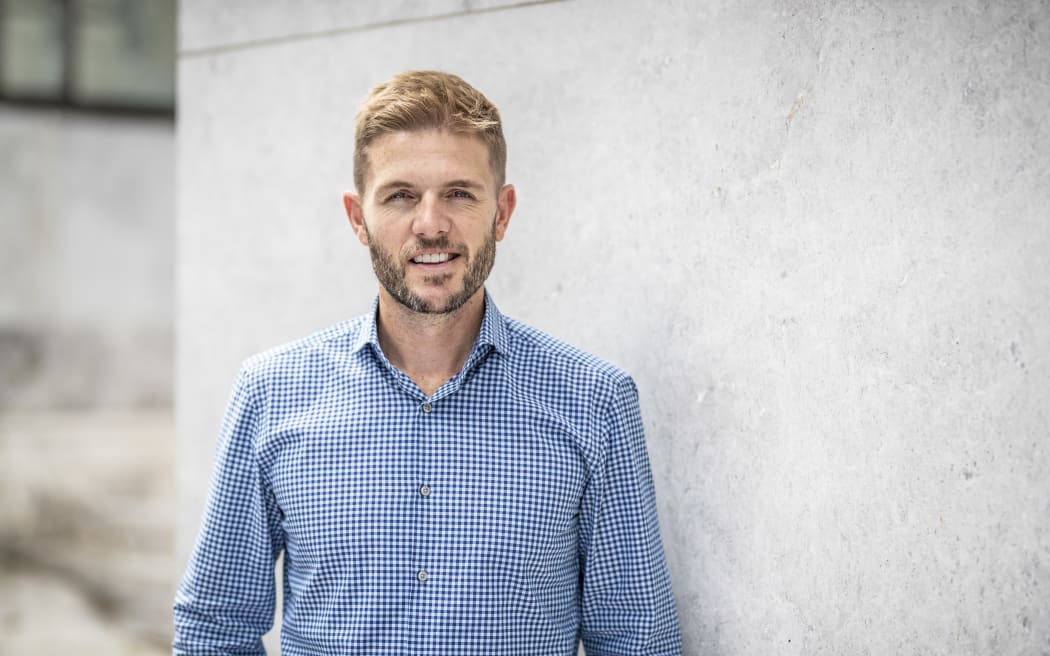
The prospect has become a lot more real under an ACT party health policy to establish public-private partnerships (PPP) with "large, global infrastructure developers and investors". Photo: 123rf
A multi-billion-dollar company wants the government to hurry up and help it build hospitals, in what could be a seismic shift in health infrastructure.
"We have a number of shovel-ready projects across New Zealand that the government could be an anchor tenant or partial tenant of," Vital Healthcare Property Trust fund manager Aaron Hockly told RNZ on Thursday.
Sharemarket-listed Vital is one of the country's biggest hospital landlords. It has spotted an opportunity in National's coalition agreement with ACT that commits the government to explore taking long-term leases with privately-owned health facilities. That is, the delivery of health services would remain public, but their location would shift, to inside hospital buildings that are privately built, owned and managed.
"We'd be delighted to work with them because that would provide quicker access to healthcare across New Zealand," Hockly said.
Building full-scale hospitals with operating theatres was less likely "because I think there's probably some political considerations, which we probably wouldn't want to go near".
"But there's no reason why we couldn't co-own even some of those [major] facilities with the likes of ACC and New Zealand Super, iwi etc, which might alleviate some public concerns around essentially a private landlord owning a public hospital."

Vital Healthcare Property Trust fund manager Aaron Hockly Photo: Supplied
Vital is looking for partners in the coming months for two expansions, in Auckland and Christchurch.
If the government signed on as a "cornerstone" tenant, it would speed things up, Hockly said.
The prospects of that have become a lot more real under an ACT party health policy to establish public-private partnerships (PPP) with "large, global infrastructure developers and investors" to refurbish or build new facilities with long-term lease arrangements.
The Labour-led government previously banned PPPs in health and education.
National professed the desire in August to to find other funders for building hospitals - mentioning ACC, the Superannuation Fund, KiwiSaver funds.
It also added: "We have no specific plans for private funding for hospitals or other health infrastructure at this stage."
Hockly said Vital could build and manage hospital buildings significantly more cheaply than the government could: it gets a building constructed, maintains it, and the tenant does the fit-out with medical gear - and could do much more of it if the government signed on.
It was about to embark on a new outpatient day-stay facility at its public-serviced maternity unit in Christchurch. "The government taking at least a partial stake will enable us to start building quickly," by early 2026, he said.
Its consented plans to double the size of its private Ormiston hospital in south Auckland was another option for public buy-in.
"We would be open to all types of arrangements."
Four years of raising this with the previous government had gone nowhere, he said.
But the new government's policy on leaseback was "exactly our wheelhouse".
However, he had not heard from the new ministers of health or infrastructure, plus Vital did not know whom to talk to at Te Whatu Ora. The agency's long-drawnout restructure meant "the decision makers are quite hard to find in terms of who can commit to taking space".
Te Whatu Ora told RNZ that while it was aware the government was considering different funding models, it had yet to talk to ministers about infrastructure.
ACC said it did not comment on prospective or potential investments.
NZX-listed Vital leases out a fraction of its billion-dollar New Zealand portfolio to Te Whatu Ora already; Australasia-wide, public services make up just 3 percent of its $3b-plus of health space.
The 'element of privatisation'
Otago University health professor Robin Gauld said the leaseback approach was worth looking at.
"There is an element of privatisation to it, however, it's really a funding arrangement which, if you've got an ACC-type partner, would have some endurance to it," Gauld said.

Otago University health professor Robin Gauld. Photo: RNZ / Ian Telfer
However, former senior doctors' union head Ian Powell said it was a form of PPP that had "a lot of sting in the tail".
"Whoever the private participant is, and in whatever shape or form, they have to make a rate of return, a profit. And that's an extra cost margin for the system," Powell said.
"The experience in the UK ... has been disastrous in terms of quality of facilities, quality of care and fiscally - they're a big drain now on the health dollar in the UK."
Vital has half a billion dollars of developments under way in Australasia.
Its 2023 annual report said it targeted places with high rates of health insurance - Australia - or "government supported ... catchments with growing populations".
"Despite recent heightened market volatility, healthcare property remains a defensive asset class, underpinned by a high level of government support and non-discretionary spending," said the company, which is managed by Toronto-listed Northwest Healthcare Properties Real Estate.
The hospital tenancies were at least 30 years long.
"We see the more immediate opportunities is really building new facilities ... that the public wouldn't otherwise have, and probably extending our existing hospitals," Hockly told RNZ.
Private-public arrangements could vary, say, for a hospital's ownership to revert to the Crown when it was 90 years old, he said.
Vital's 15 properties in New Zealand include Auckland's Ascot bought in 1999 and worth $187m, and Wellington's Wakefield hospitals bought in 2017 and worth $156m.
He had had "a few productive discussions" with the previous health minister Andrew Little, but overall it was frustrating, Hockly said.
"It is a bit disappointing, that full utilisation of skills and capital in the economy isn't being used by the government, or hasn't been used to date.
"So it would be good for maybe a less ideological basis on which some of these decisions are made."
Gauld said any leaseback could be negotiated in the best public interest.
But Powell said a private investor would want a big say in a building's design and capacity, possibly "short-changing patients".
"We should not be designing a system to fit around a particular company's needs," he said.
"We should be looking at this suggestion with a lot of apprehension."





